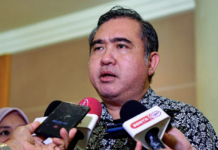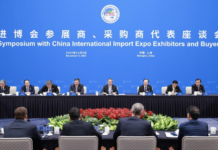GEORGE TOWN, April 9 – The implementation of the Penang Mutiara Route Light Rail Transit (LRT) project is seen as a beneficial alternative transportation option for residents to alleviate traffic congestion and enhance urban mobility by connecting urban and suburban areas.
The LRT line, expected to run from Silicon Island to Komtar, then crossing to Penang Sentral in Seberang Perai, is also poised to boost tourism in the state, which is rich with UNESCO Biosphere Reserve Sites.
Transportation analyst and expert Abi Sofian Abdul Hamid said that the LRT network connects strategic locations, fulfilling users’ demands with efficient and accessible transportation hubs at each station.
“Therefore, support networks for ‘the last mile’ and related aspects need to be taken into consideration. This includes shuttle transportation and parking facilities.”
“If we look at the Prime Minister’s announcement (Datuk Seri Anwar Ibrahim), this project will also involve transit-oriented development concepts where LRT stations will be focal points for residential and job centre development,” he said.
Abi Sofian, who is also the Founder of Thought Partners Group Consulting (TPG), explained that the project could contribute to green mobility by reducing vehicles and carbon emissions in line with the National Energy Transition Roadmap (NETR) if executed based on thorough research findings and proper implementation.
In theory, he said, with stations located at tourist attractions, it can attract tourists to move easily from one attraction to another, including Penang Sentral Station, which offers seamless transportation connectivity.
Commenting on the federal government’s decision to officially take over the LRT project from the state government, Abi Sofian said it would ensure various project management aspects are better handled, considering the involvement of MRT Corp with their experience in delivering rapid transportation in the Klang Valley.
Meanwhile, Tourism and Transport Business Consultant YS Chan noted that apart from benefitting commuters, industrial tourism will certainly get a boost as Penang is a showcase for the successful manufacturing of high-tech products not only in Malaysia but also globally.
“Visitors will no longer have to brave congested traffic as travelling by LRT will be a breeze and they will be impressed to witness a large number of locals enjoying the facility. However, the entire LRT route must be carefully thought out and the location of stations strategically planned,” he said.
Asked whether the construction of the LRT will affect the operations of the ferry service, Chan, who is an Asean Tourism Master Trainer, believes it is not an issue as the ferry service is just complementary to road and rail services.
Penang Chief Minister Chow Kon Yeow described the LRT project as providing various socio-economic development benefits to the residents of the Pearl of the Orient in the long term.
While the LRT project may not solve 100 percent of traffic congestion problems, he is confident that it is a state government effort to assist people facing pressing traffic congestion issues.
The LRT project, estimated to span about 29 kilometers with 20 stations including two interchange stations at Komtar Station and Penang Sentral Station, is expected to commence in September or October this year.
Facilities for Keretapi Tanah Melayu Berhad (KTMB) commuter trains and electric trains (ETS) will also be provided on the Pearl LRT line, targeted to operate by 2030.
Last week, the federal government officially took over the Penang Pearl LRT Route project from the state government, following the Cabinet’s decision to approve the development proposal for the project on March 22.
















